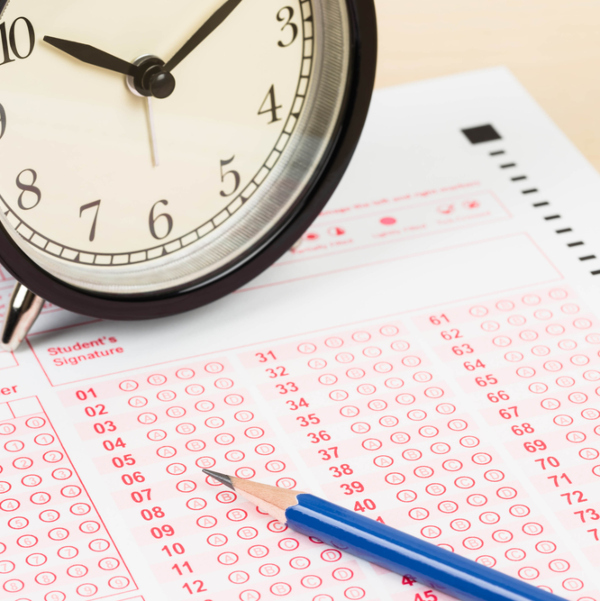Harvard Law grad who sued over bar exam accommodations loses in 2nd Circuit

A graduate of Harvard Law School can’t sue for denial of her full requests for accommodations while taking the bar exam, a federal appeals court has ruled. (Image from Shutterstock)
Updated: A graduate of Harvard Law School can’t sue for denial of her full requests for accommodations while taking the bar exam, a federal appeals court has ruled.
In a July 19 decision, the 2nd U.S. Circuit Court of Appeals at New York affirmed dismissal of the case filed by the law grad, who is identified as “T.W.”
T.W. had sued the New York State Board of Law Examiners, which is protected by sovereign immunity, the appeals court said.
T.W. had alleged that she lost her job at Ropes & Gray because she was granted only partial accommodations when she took the New York bar exam the first two times, causing her to flunk. She passed the bar exam on her third try in February 2015 after she was given double the time to complete it.
T.W. had sought accommodations for anxiety and cognitive deficits caused by a head injury that she suffered when an all-terrain vehicle that she was riding in toppled off a cliff, according to her suit. She asked for the same bar exam accommodations that she received at Harvard: 50% extra time on exams, stop-clock breaks and separate testing facilities.
For the first bar exam, T.W. was provided off-the-clock breaks and seating in a smaller room. In the second, she was given 50% extra time, seating in a room with others receiving similar accommodations but no off-the-clock breaks. Despite passing the bar after the double-time accommodation, T.W. said she was still unable to find employment similar to the law firm job that she lost.
The case has twice gone before the 2nd Circuit. In April 2021, the 2nd Circuit said the board of law examiners had immunity from T.W.’s claim under Section 504 of the Rehabilitation Act, which bans disability discrimination by programs or activities receiving federal financial assistance. The board is an arm of the state that does not receive federal funding, entitling it to immunity, the appeals court concluded.
The case then returned to Senior U.S. District Judge Raymond J. Dearie of the Eastern District of New York for a ruling on T.W.’s remaining claim under Title II of the Americans With Disabilities Act.
Dearie ruled that the board is entitled to sovereign immunity as an arm of the state, that Title II of the ADA doesn’t abrogate sovereign immunity for money damages, and that T.W. wasn’t entitled to declaratory and injunctive relief.
On appeal, the 2nd Circuit said Congress has authority to abrogate state constitutional immunity for conduct that violates the 14th Amendment or for constitutional conduct that should be banned to deter violations.
But the failure to grant accommodations was not a 14th Amendment violation, and Congress did not abrogate immunity for this type of ADA claim, the 2nd Circuit said.
T.W. was not seeking to vindicate a core constitutional right, such as a right to education or access to the courts, the appeals court said.
“We agree with the board that the right involved in T.W.’s case is a disabled person’s right of occupational choice and more specifically that of licensure to practice in a highly regulated profession,” the 2nd Circuit said. “Nothing in the Constitution guarantees an individual a right to work as a lawyer, nor does T.W. identify any authority otherwise.”
Congress has not identified a long-standing pattern of disability discrimination in professional licensing, the appeals court said. Although one congressional witness told of hearing “horror stories” about people with disabilities trying to take the bar exam, there is no basis to conclude that the stories “describe events that were unconstitutional as opposed to simply unfortunate,” the appeals court said.
“In sum, Title II of the ADA does not validly abrogate sovereign immunity in the context of professional licensing,” the 2nd Circuit said.
T.W. had argued that even if the board had immunity, she was entitled to an injunction barring the reporting of her bar exam results and requiring expungement of the record.
The 2nd Circuit disagreed. The injunction can’t be granted because it isn’t designed to remedy an ongoing violation of federal law, the appeals court said. And declaratory relief isn’t available because it is retrospective, rather than prospective, in nature, the 2nd Circuit said.
The Legal Profession Blog has highlights from the appellate decision, while Law.com and Law360 have coverage.
Mary Vargas, a partner at Stein & Vargas, represented T.W. She criticized the decision in a statement emailed to Law.com.
“This decision clears the way for state professional licensing entities to discriminate and in so doing deprives all of us of the gifts that people with disabilities have to offer,” Vargas said.
The case is T.W. v. New York State Board of Law Examiners.
Updated July 25 at 8:30 a.m. to reflect the court’s identification of the plaintiff.
Write a letter to the editor, share a story tip or update, or report an error.


